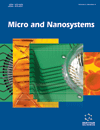
Full text loading...
The health and lives of individuals are increasingly at risk due to Cardiovascular Diseases (CVDs). Even though there are numerous medicines with various modes of action that are commercially available as traditional formulations for the treatment of CVDs, these drugs still fall short of expectations due to issues with water solubility, biological effectiveness, non-targeting, and drug resistance. To overcome biological barriers, the vast majority of cardiovascular nanomedicine research has focused on preparing ligand-based nanoparticles for enhanced targeting. These micro or nanoparticles are frequently administered into the vasculature or targeted vessel for cardiac disorders like atherosclerosis, hypertension, and myocardial infarction to avoid issues with conventional drug delivery, such as adverse systemic side effects. Gene therapy holds great importance in the field of drug delivery to fight against CVD. An outlook is provided on new areas of nanotechnologies (such as in vascular, implantable, or wearable device technologies) for the management of CVD, as well as to encourage better treatment by using nanocomposites and nano-coatings. Furthermore, it is concluded that nanotechnology can reduce the burden on healthcare systems by contributing to the early detection and efficient treatment of CVDs.

Article metrics loading...

Full text loading...
References


Data & Media loading...

